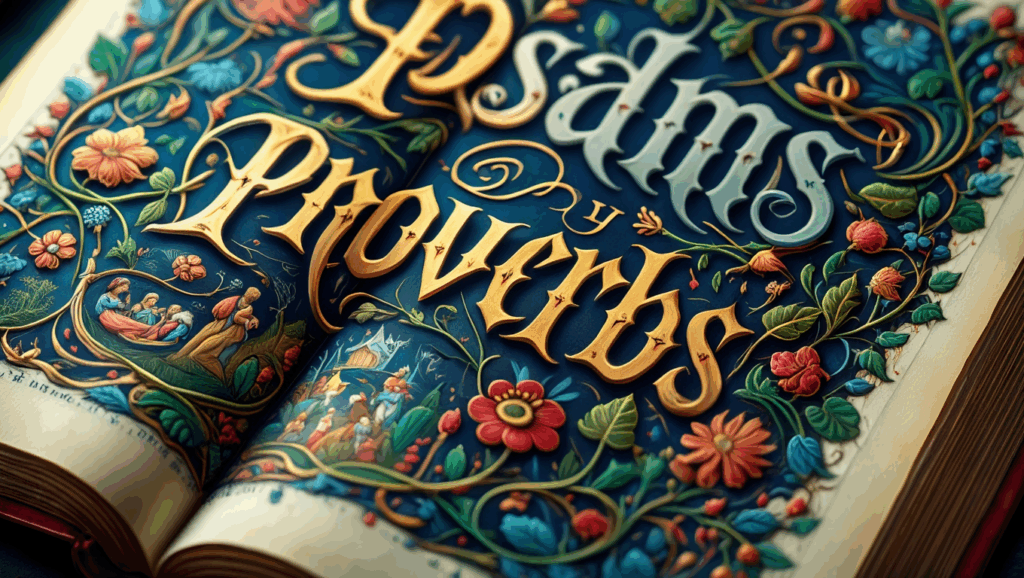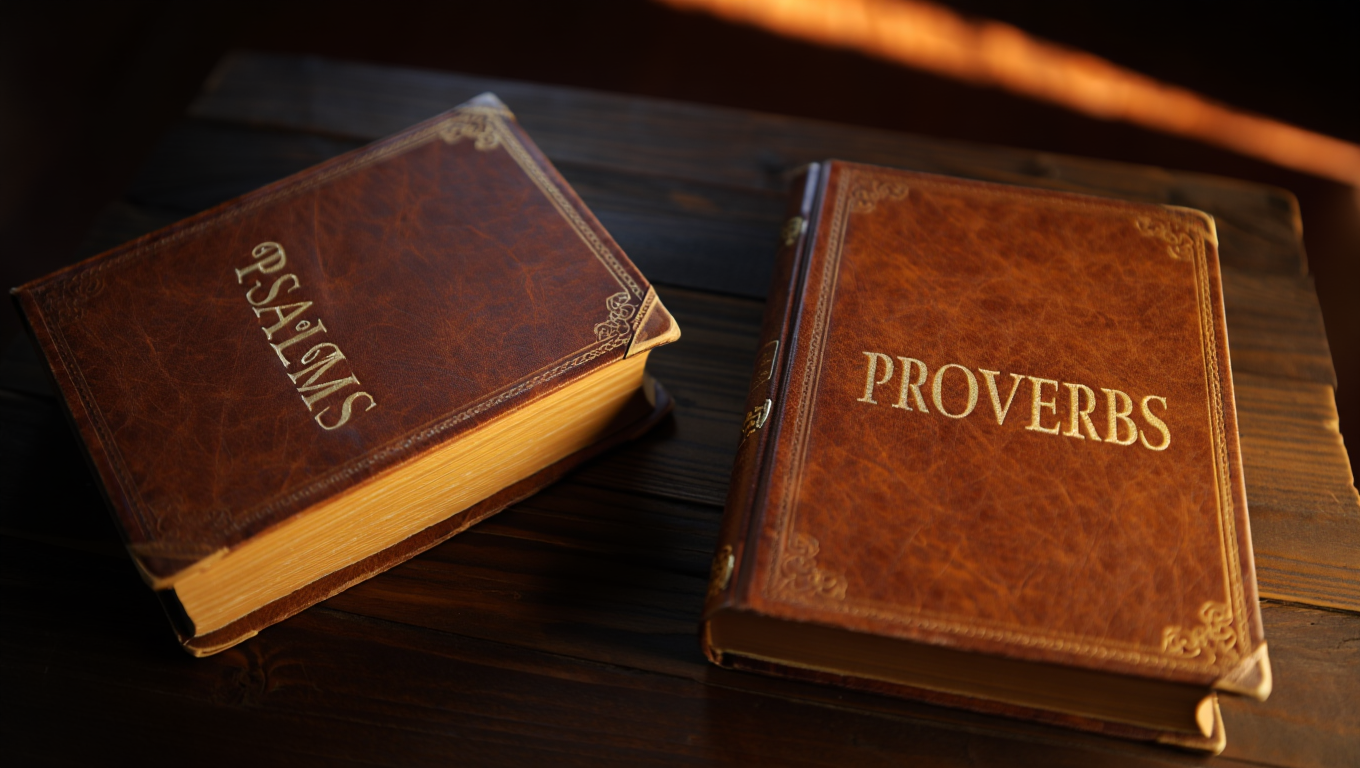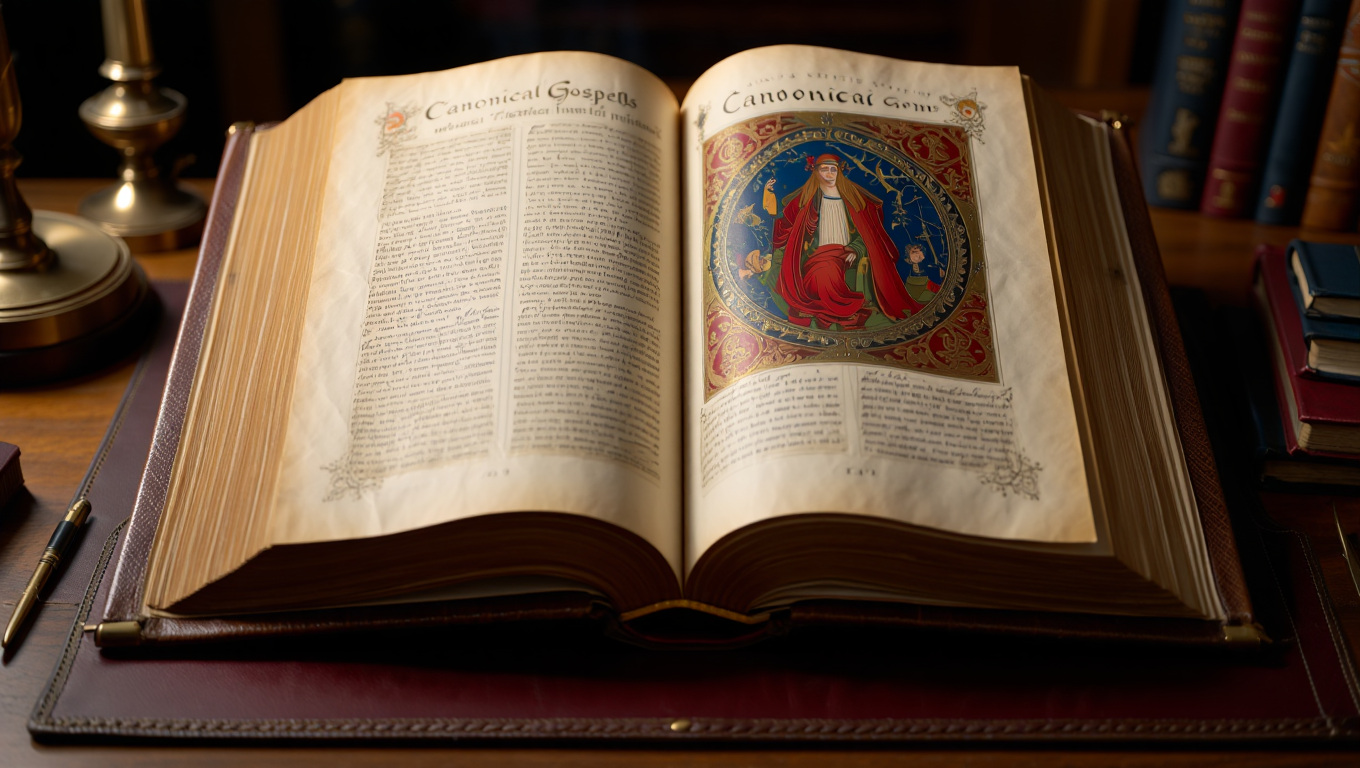Psalms and Proverbs both live in the Old Testament’s wisdom section. They both give guidance, sure, but in really different styles. You could say Psalms is mostly talking to God, while Proverbs is more like talking about God and how to live smartly by His principles. It’s a key difference to grasp right away.
What are psalms
Think of Psalms as the Bible’s songbook or prayer journal. It’s a collection of 150 poems, songs, and prayers written over hundreds of years by different people, though King David gets credit for a lot of them.
The main thing about Psalms? It’s raw emotion directed straight at God. People pour out their hearts here. You’ll find soaring songs of praise right next to gut-wrenching cries of pain or anger (these are often called laments). There are songs giving thanks, poems asking for help, and reflections on God’s power. It covers the whole range of what it feels like to be human and trying to connect with the divine. It’s less about rules and more about relationship. The honesty is pretty striking… people aren’t afraid to show God exactly how they feel, good or bad.
 What are proverbs
What are proverbs
If Psalms is the heart talking to God, Proverbs is the mind learning from God. This book is a collection of wise sayings, mostly short and memorable. Think of them like nuggets of practical advice for living a skillful life. King Solomon, known for his wisdom, is the main author, though others contributed too.
Proverbs covers the nitty-gritty of everyday life. You’ll find advice on things like:
- Making good choices vs. foolish ones
- Hard work vs. laziness
- Honesty, fairness, and justice
- Managing money
- Family relationships and friendships
- Controlling your temper and tongue
It’s less about grand prayers and more about applying godly insight to your behavior and decisions day by day. The goal is to gain chokhmah, a Hebrew word meaning skill or applied knowledge. It’s about living smartly, avoiding pitfalls, and generally making life work better by following God’s principles.
Focus and purpose
So, what’s the main point of each book? Psalms is all about our relationship with God. Its purpose is to give voice to our prayers and worship. It helps us connect with God emotionally, whether we’re feeling thankful, desperate, confused, or full of praise. It guides us in talking to Him about everything.
Proverbs, on the other hand, focuses on wisdom from God for navigating life. Its goal is to teach practical understanding and skill for living. It shows us how to act wisely and justly in our relationships, work, and communities. It’s about applying God’s truth in the world, aiming for a righteous and successful life according to His standards.
One helps you look up (to God). The other helps you look around (at how to live).
Style and structure
The way these books feel is also quite different. Psalms reads like poetry and song lyrics. It uses vivid imagery, metaphors, and a common Hebrew poetic technique called parallelism. This often involves saying something, then saying it again in a slightly different way, or contrasting it.
For example:
The LORD is my shepherd; I shall not want. He makes me lie down in green pastures. He leads me beside still waters. (Psalm 23:1-2)
The tone shifts dramatically throughout Psalms, reflecting those raw emotions we talked about. Some parts are full of joy, others deep sadness.
Proverbs has a very different structure. It’s mostly made up of short, punchy statements. These are often called aphorisms or maxims. They are designed to be easily remembered and applied. Many proverbs use contrast to make a point:
A wise son makes a glad father, but a foolish son is a sorrow to his mother. (Proverbs 10:1)
It reads more like a handbook or instruction manual than a songbook. The tone is generally instructional, aiming for clarity and practical impact rather than emotional expression.
Authorship and context
Knowing who wrote these books adds another layer. King David is the most famous author associated with Psalms. He was a shepherd, musician, warrior, and king. His life had incredible highs and deep lows, and you see that reflected in the psalms attributed to him. They feel personal, born from real experiences of trusting God through battles, failures, and celebrations. Other authors like Asaph and the sons of Korah were likely temple musicians, adding their own perspectives.
King Solomon, David’s son, is the main figure behind Proverbs. God granted him exceptional wisdom (you can read about it in 1 Kings 3). He ruled during a time of relative peace and prosperity for Israel. His proverbs reflect a king’s perspective on order, justice, and the skills needed to manage life and society well. While Psalms often comes from a place of struggle or intense worship, Proverbs feels more like collected wisdom passed down in a stable environment. Other wise men, like Agur and Lemuel (mentioned at the end of Proverbs), also contributed their insights.
 Skip to main content
Skip to main content


